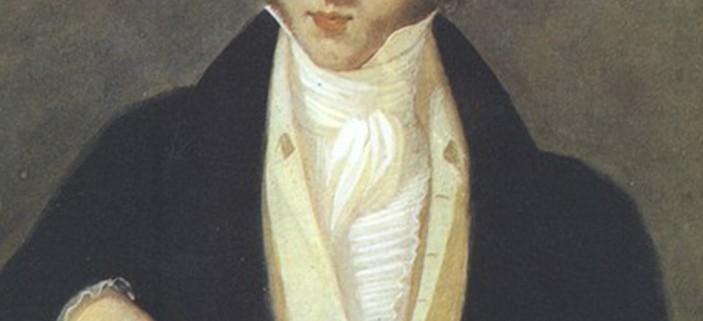Loyalty is significant in the opera Norma
A few days ago, I stumbled across an old vinyl recording of Vincenzo Bellini’s Norma at The Last Bookstore. The album, recorded at Teatro alla Scala in 1960, includes Maria Callas singing the title role, as well as tenor Franco Corelli and mezzo-soprano Christa Ludwig in their respective roles. It was a charming find, especially considering it was less than $5. So naturally, I bought it.
Norma is one of the most popular bel canto operas of all time. Likewise, it is also one of my favorite operas. Bellini was the master of the single-line melody — his haunting and decorative part-writing is what make his music such a treasure to the ears. Even famed Italian composer Giuseppe Verdi once remarked on the beauty of his melodic writing, saying that no other composer had this type of skill. However, what makes this opera one of my favorites is not necessarily the music but the themes of friendship and loyalty that are present throughout the plot.
To give a very concise synopsis of the opera, the piece chronicles the life of Norma, a high-priestess of the Gallic Druids. Though in a position of power and commanding respect, she broke her vows by falling in love with Pollione, a Roman general fighting in Gaul. She, in turn, bears his children in secret. All the while, Pollione has also maintained a secret relationship with Adalgisa, a fellow priestess in Gaul. Upon his return to Rome, Pollione begs Adalgisa to accompany him, to which she agrees. However, once Adalgisa learns of Pollione’s history with Norma, she angrily denounces him, as well as their relationship. In a classic case of “chicks before dicks,” Adalgisa remains her loyalty to Norma over her affair with Pollione.
I am particularly sensitive to issues regarding friendship right now. Over the past few months, I’ve realized that many of the people I’ve chosen to surround myself with don’t seem to value loyalty as much as I do and in turn don’t have my best interested in mind. The entire ordeal has been rather humbling, as it has affirmed my suspicions regarding other people’s intentions. Maybe I’m just being cynical, but my decision to not seek friendships further from the ones I already have stems directly from my fear of rejection.
All in all, these undertones are what make Norma so relatable in today’s society. In addition, I believe that Adalgisa is the true MVP of the opera. Her refusal to continue her relationship with Pollione after discovering his romantic involvement with Norma has stuck with me, as I value loyalty above all other traits in regards to friendship. And perhaps I find these themes so powerful because I’ve always had some difficulty maintaining friendships. Though I have a few very close friends who I’ve stayed in touch with since high school, for the most part, I haven’t held on to many of the friendships I’ve made in the last few years. I believe this is related to my trust issues, because I have little faith in people’s intentions when it comes to loyalty. Regardless, I’ve always known that friendship is one of the greatest gifts of all. Perhaps that is why I am so picky when it comes to who I choose to surround myself with.
I’ve listened to my vinyl of Norma almost nonstop since purchasing it. Bellini was not only the master of melody (or the “Swan of Catania” as he is more commonly referred as), but he was also so meticulous in the way particular emotions were translated into the melody. Verdi was correct in saying that no other composer had his talent in melodic writing. And in a society that seems to value self-gratification, I can always turn to Bellini to restore my peace of mind.
Arya Roshanian is a senior majoring in music. He is also a lifestyle editor at the Daily Trojan. His column, “From the Top,” runs on Tuesdays.

